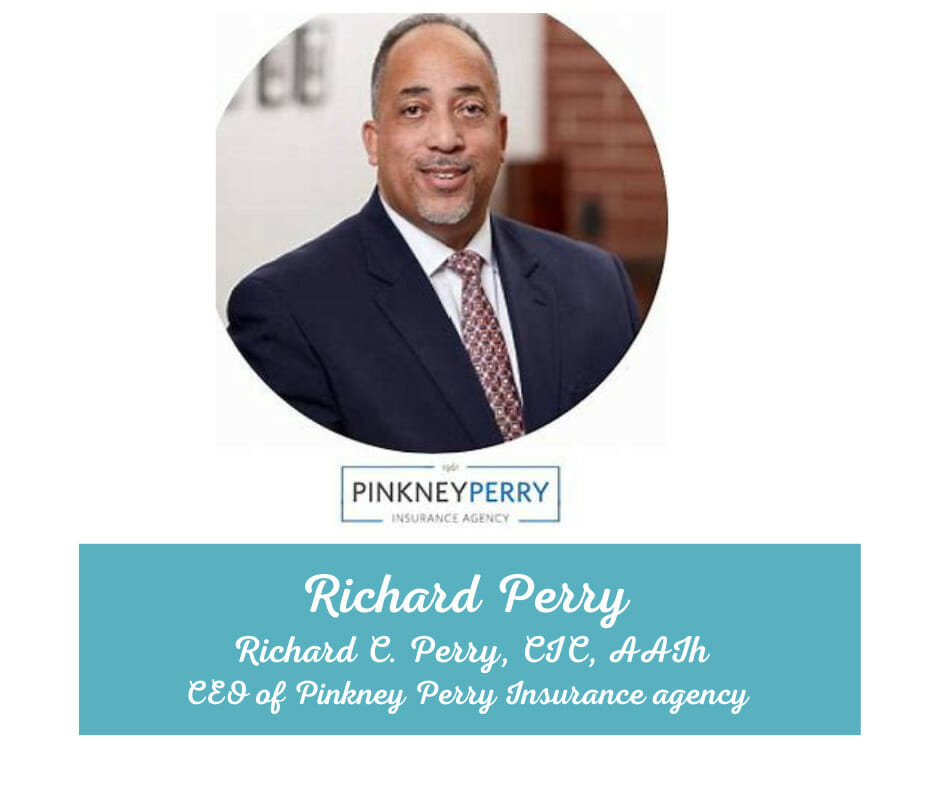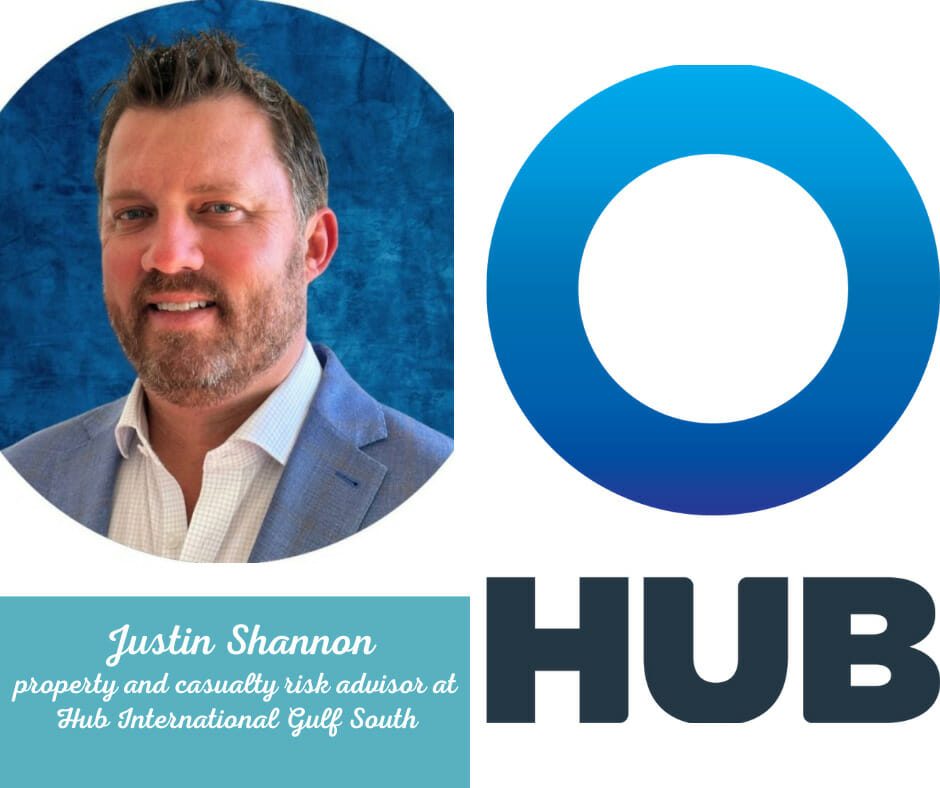Nobody likes to pay for insurance, but everybody wishes they had it when something catastrophic happens. In short, insurance brings peace of mind. When it comes to the cannabis industry insurance policies customized to address risks specific to the industry is critical.
Policies for the cannabis industry include problems such as workplace injuries, bodily injuries, property damage accidentally caused to others, crop failure, and theft.
Businesses that could benefit from cannabis insurance include cultivators, dispensaries and transporters, manufacturers, wholesale and distributors, medical cannabis physicians, and testing laboratories.
A good cannabis insurance policy has a mix of several types of insurance that can cover businesses for a variety of problems. Those include the cost of claims, theft, and damages to your business property and lawsuits.
I talked to some people in the insurance industry who have added cannabis to their specialties.

Richard Perry, president and CEO at Cleveland-based Pinkney-Perry Insurance Agency, Inc.
What is one of the biggest tips you’ve learned since your company started focusing on cannabis:
If you are a grower or cultivator there are unique challenges in this industry that impacts your success.
One of them is understanding the different dollar values of your plants as they mature through the cultivation process and insuring the crops and flower properly during the different stages of development.
The valuation process can be a critical determination in the event of a fire, windstorms, or other major losses to your facility.
Even having the right kind of lighting in your grow facilities is important. Recent studies have determined that LED grow lights are
best for cannabis growth and can increase yield by an estimated 30 percent. LED lights can produce more light and less heat. They help make mature cannabis plants more heat resistant while using less electricity. Many insurers are now requiring LED lights in grow facilities to maximize operational efficiencies.
Do you have a suggestion for the retail side of the business?
Yes. Proper liability insurance is essential. Budtenders routinely meet with patients/customers, they listen to their issues and concerns, then make critical product recommendations based on that meeting. Retailers and budtenders can be held liable for those product recommendations. That’s why you need professional liability insurance, similar to liability insurance that a doctor or pharmacist needs when prescribing a particular medicine.
Any other thoughts?
While it’s difficult to insure a business for every eventuality, it is important to work with an insurance professional that is familiar with the unique exposures present in the cannabis industry. Having the right insurance coverage at the time of a loss can be the difference between staying in business or being out of business.

Justin Shannon, property and casualty, risk advisor at Hub International Gulf South. Hub International is the 5th largest insurance broker in the world, and the largest cannabis insurance broker in North America.
What’s one piece of advice you can offer as an insurance broker?
In business, as you get into commercial stuff, whether you’re looking for a spa or an attorney, it’s about offering a professional service. You’re not going to reach out to four or five attorneys to see who can get you the best deal, you want to be represented by someone who has the knowledge and experience to help you with your challenge.
It’s more about rating an insurance agent like any other professional that can impact your business because you don’t know what you don’t know.
Is there an advantage to finding insurance through an insurance broker as opposed to going directly to an individual?
You can reach out to a captive insurance firm, which means that basically, they’re only going to provide you with a quote from their company.
In the cannabis world, you’re only going to get their quote. A broker, however, will reach out to various companies to get you the best options for coverage and premiums.
We have our hands on all sorts of markets. You want to be with someone in the industry that says, “This is what I do.” We have direct contact with every large cannabis insurance provider in North America.
Does it make sense to reach out to a few different insurance brokers if you decide not to reach out to an individual?
What people don’t understand is that if you go to multiple brokers, if I get a quote for company A, then that’s my quote for a year.
Markets get blocked. Basically, the first person that gets to that market for a quote has the quote. So if two brokers are shopping for the same person, then I can’t get a quote. So at the end of the day, you want a broker that has access to all markets so that they can compare all quotes to find the best coverage for you.
As a broker I’m not selling insurance, I’m working for you as a client to find the best coverage and premium prices. Cannabis moves slower than a lot of other industries. It might take 60 days to shop it around
Sometimes you can get better deals by shopping around. But you really don’t want to get into the price game too much. Similar to buying a car, maybe you’ve been to four other dealers. You might find that sure you can get a KIA cheaper, but that doesn’t mean it’s necessarily better when you wanted a Mercedes.
Any closing thoughts?
It’s a mistake to not work with someone who understands your business and asks the questions that need to be asked in order to make sure you’re covered properly. Especially in cannabis, there are policy exclusions and you need someone who understands what they’re looking at.
Also, there is another advantage to going with a major company. Bigger brokerages have the ability to argue cases because of their clout when claims happen.

Cimone Casson is CEO of Cannas Capital Insurance Firm, an insurance company that focuses on the protection needs of cannabis and crafting brewing businesses. The company offers tailor-made insurance portfolios for legal marijuana businesses in order for them to operate with the same peace of mind as other companies despite their unique risk.
What is the biggest mistake that cannabis companies make when it comes to getting insurance for their operations?
The biggest mistake is not connecting with an insurance company that specializes in cannabis. Most times, an insurance agent is not familiar with the risks or even how to put in an application.
You can go to a Joe Shmoe at an insurance company, and they can write up a policy for you, but chances are the policy is going to not only have a ton of exclusions, and an unnecessary high premium. I had one client that was paying $17,000 for an insurance premium and I was able to find them a better policy for about $1000. I saved them $16,000.
Getting coverage for novel cannabinoids such as Delta 8 and Delta 9 can be challenging. You need an agent who knows how to put in an application correctly so that it meets the requirements for an underwriter to approve it. There are layers in an application such as where certifications and where the products are made.
Can you expound further on the challenges?
You have to know about the changes and challenges that come with a new industry. They take a pool of companies and look at the likelihood of something happening. That determines the risk market, but it’s constantly changing.
If you’re not involved in the space you don’t understand that there are so many nuances. For instance, if you have finished stock – flower that is ready but not sold – it’s still in your possession as part of your inventory. That inventory has to be put in a safe place. A big thing is understanding state requirements and business models. But you also have to understand what underwriters are looking for before approving a policy. You only know that by focusing on the cannabis market.
Since 2018, we’ve sold more than 300 cannabis policies so we’ve learned a lot through trial and error. We’ve also aided with public policy statewide, nationally, and now globally.
